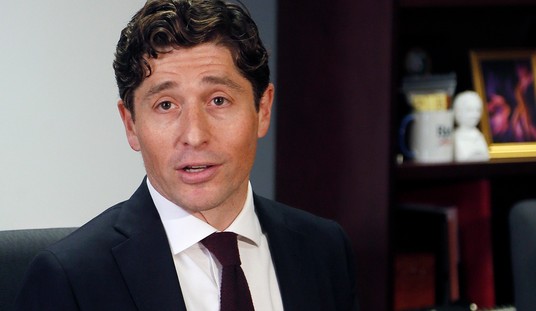Howard Kurtz takes a quick look at the debate over Ted Kennedy’s op-ed piece in Newsweek. Kurtz offers a mild criticism of Bill Kristol’s response. Howard’s response is almost a throwaway, but it underscores a gap in understanding the issue of health-care “reform”:
Kristol is back with this piece, attacking Ted Kennedy’s Newsweek cover:
“Sen. Kennedy has weighed in, and he may have helped doom Obamacare.
“For Kennedy and his co-author, Bob Shrum, have let the rationing cat out of the bag. And that’s a problem for President Obama and the Democrats. Make no mistake: Beyond all the other crippling problems with the Democrats’ health care proposal–its cost at a time of massive deficits, the tax increases it requires at a time of recession, its preference for government over the private sector and for central planning over free competition–the deepest vulnerability of Obamacare is that it (intentionally) puts us on a course towards government rationing of health care.”
That’s a nice debating point, but anyone who has dealt with insurance companies knows that we already have a form of rationing in this country.
Howard’s right, of course; we have insurance companies rationing care, or to be more exact, rationing compensation, which isn’t quite the same thing in theory but does in practice. But why should that be a surprise? All markets are rationing systems for products of varying scarcity. That is why markets exist — to set prices that allow for rationing of finite amounts of goods and services based on supply and demand, with prices rationing goods and services to those who pay the most while allowing the greatest distribution. We have rationing systems for anything requiring a purchase. About the only thing we don’t ration is air.
What Kristol meant to say was that Kennedy made an argument for government rationing of medical care [update – and that’s actually what Kristol wrote, too — Ed]. We have that, too, in Medicare, Medicaid, the VA, and Indian Health Services, all of which are terribly dysfunctional, and none of which should build confidence in expanding the government rationing to the rest of America. Kristol responded to Kennedy’s call for just that by reminding people that they don’t need politicians in charge of their medical decisions.
Kurtz notes that insurance companies occupy that place now, but there are two big differences in that arrangement. First, people can choose now to eliminate the health insurers and pay for their own medical care. Obviously, that takes a lot of money, but in a single-payer system, that option all but disappears — just as it does in Canada, or in the UK, unless one travels out of the country to get medical services. As we have seen in both countries, that creates a much wider disparity between haves and have-nots in medical care.
The second difference? The private health-insurance market allows for competition between suppliers, where a single-payer system would not. Consumers could freely choose to use another insurer if they don’t like the rationing decisions made by their current insurer, or pay for services themselves, as I mentioned earlier. The rationing decisions come from a voluntary association between the consumer and supplier, not from a coerced choice imposed by politicians. If you don’t like the rationing decisions made under single-payer, you will be left with no other options, and the lack of competition will mean that little pressure can be brought to bear to improve those decisions through normal market forces.
If anyone wants to see how a medical-care market could work rationally, all they need to do is see how plastic surgery and Lasik markets work. Because the consumer has to deal with the actual cost of service, these providers are not overwhelmed. Because the providers get actual market compensation for their goods and services, there is no shortage of providers. And because of both of these facts, competition between providers keeps costs reasonable and rational. Health-care reform should learn from that example and move closer to that kind of market, rather than towards more scarcity, less choice, and less freedom.
Every market is a rationing system. The question is this: do you want to make the rationing decisions for yourself, or do you want them imposed on you by an unaccountable bureaucracy that has no incentive to improve?
Update: The American Spectator has more mythbusting on health care.
Update II: One can access private care in Canada and the UK, but at astronomical rates. Only the very wealthy have that as a realistic option, since the heavy tax burden for single-payer systems eats up the discretionary resources of most families.
Update III: John Greene made the same point in response to Peter Singer.
Update IV: My good friend King Banaian allows me to move into intermediate economics with this post, and then makes this serious point:
It’s not only markets that ration. All scarce goods are rationed somehow. And every rationing system creates a distribution of those goods. What I think the Democrats do is look at the distribution ex post and decides it doesn’t like it, so it wants to change it. It’s the common schism in politics between equality of opportunity and equality of outcome, or ex ante vs ex post equity. But the decision to change rationing systems doesn’t just influence distribution. It can also change the production of health care.








Join the conversation as a VIP Member